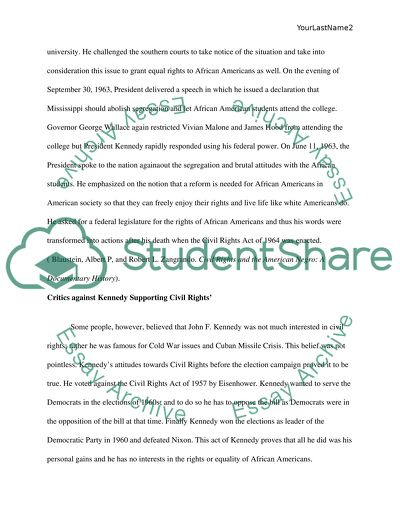Cite this document
(“President Kennedy and Civil Rights Research Paper”, n.d.)
Retrieved de https://studentshare.org/history/1392438-president-kennedy-and-civil-rights
Retrieved de https://studentshare.org/history/1392438-president-kennedy-and-civil-rights
(President Kennedy and Civil Rights Research Paper)
https://studentshare.org/history/1392438-president-kennedy-and-civil-rights.
https://studentshare.org/history/1392438-president-kennedy-and-civil-rights.
“President Kennedy and Civil Rights Research Paper”, n.d. https://studentshare.org/history/1392438-president-kennedy-and-civil-rights.


